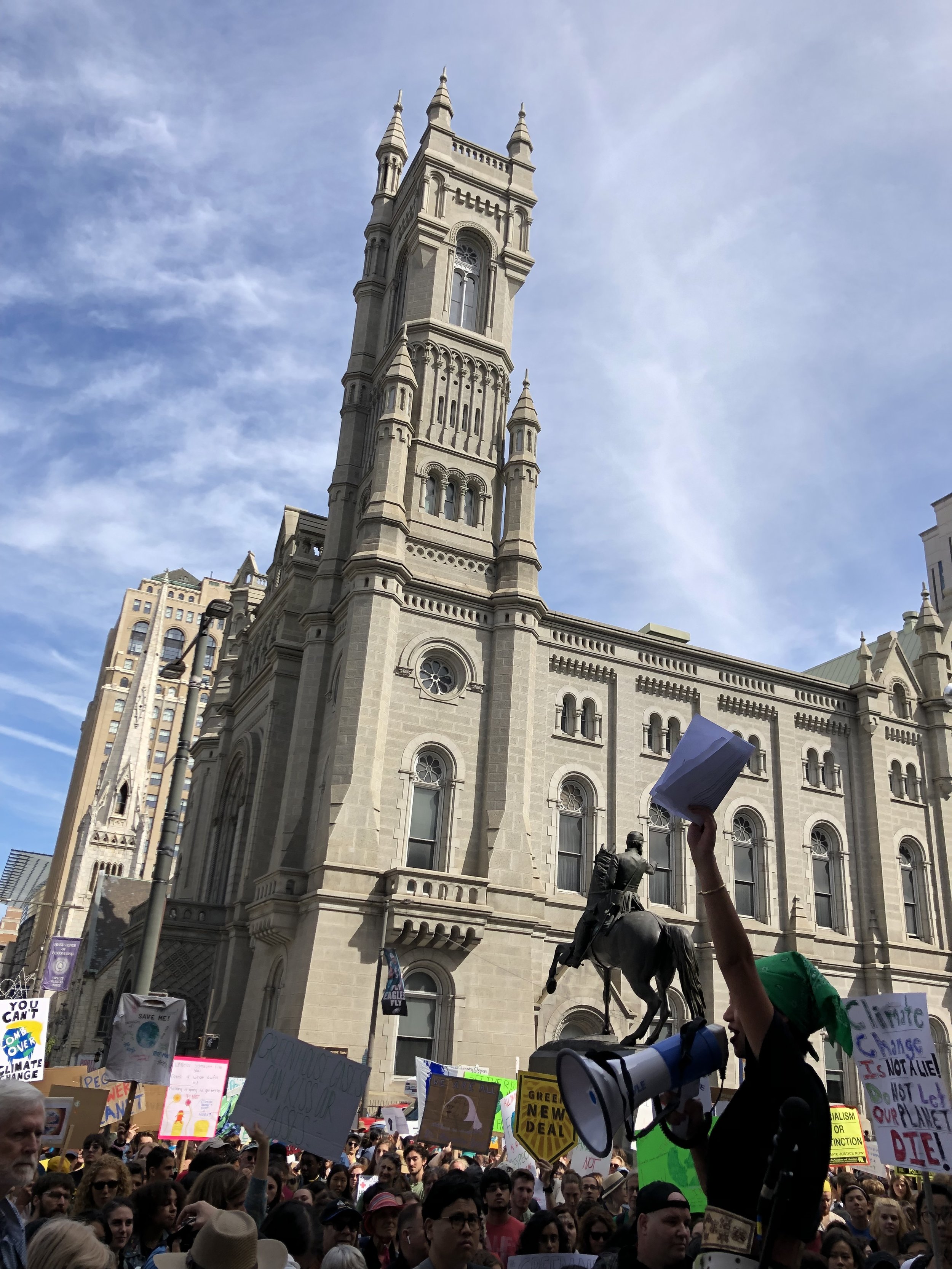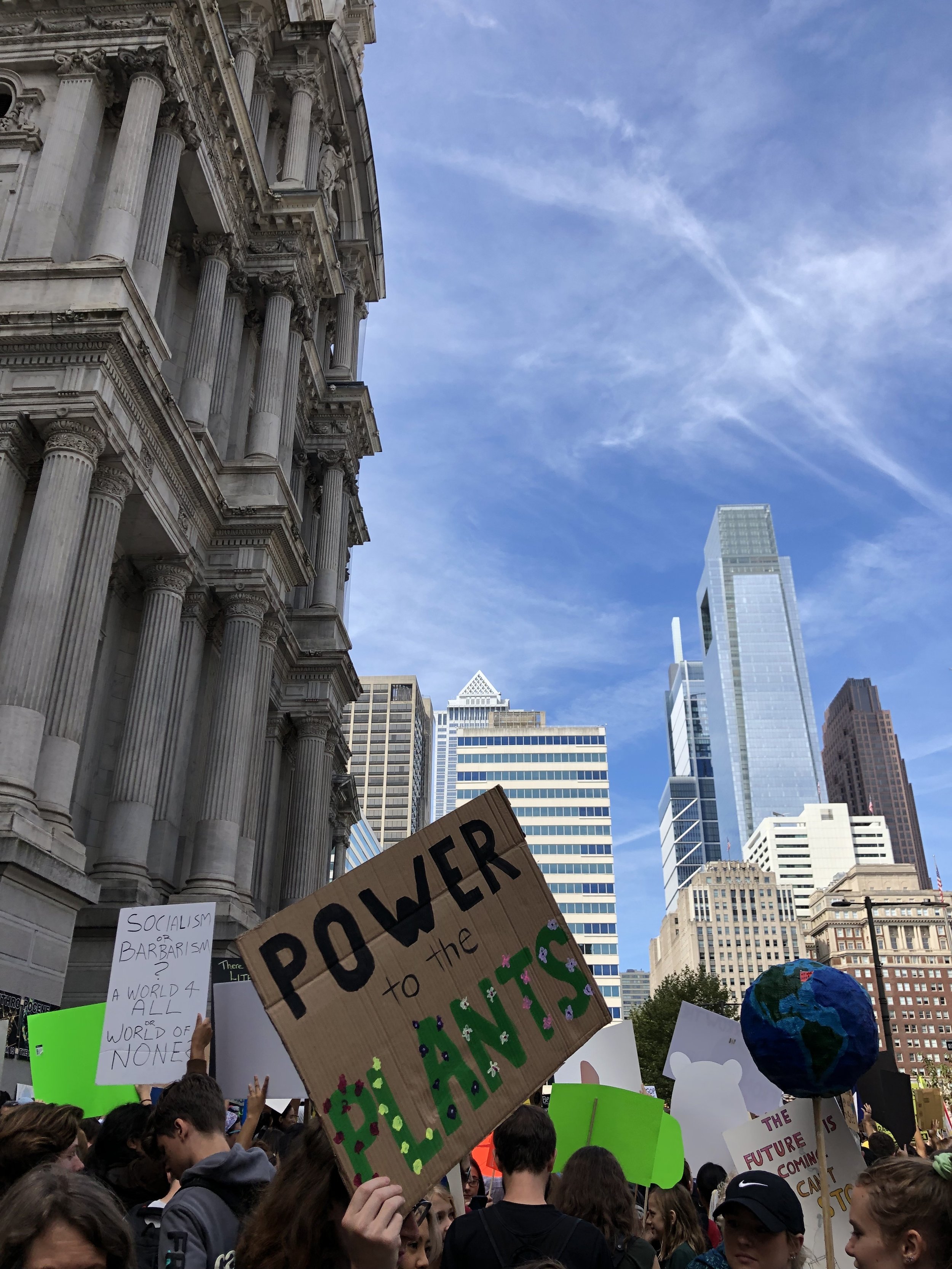Climate Strike and the New Pod
By Katie Collier, with Grace Boroughs and Bethany Wiggin
We three co-authors each participated in the monumental September 20th Climate Strike. I’m Katie Collier, a public research intern with the Penn Program in Environmental Humanities’ climate sensing and data storytelling projects. Participating in the strike sharpened my sense that the global climate crisis is also deeply personal. Last month, we launched the #MyClimateStory campaign; now I think it’s more crucial than ever. We must emphasize personal climate stories to spur action on climate.
In Philadelphia, we encountered lots of people at City Hall. We are the real people in real places affected by climate change. Young, high-school speakers who shared their stories at the march sense the climate’s dramatic changes. This crisis is taking its greatest toll on society’s youngest generation, one who has never lived in a world without this mounting catastrophe. The #MyClimateStory team senses that collecting climate stories is important. Our shared stories document the crisis on intimate terms. They show how a concept for a global scale reverberates across local experiences and diverse lives. We are registering climate change with our senses, with our eyes, ears, and noses. We are feeling it in our bodies. And we feel solidarity when we turn out and come through for one another’s experiences.
The story of Philadelphia high school student, Sabirah Mahmud, hit me hard at the #PhillyStrikesBack climate march. Sabirah detailed her Bangladeshi family members’ deteriorating health, the direct result of unabated pollution and rising sea levels. Penn sophomore and climate-strike organizer Vyshnavi Kosigi stressed the importance of climate storytelling, “Personal stories, from those who have already lost so much to the climate crisis and from those who are scared of what they will lose, help to make our situation feel as real as it actually is,” Kosigi commented. “Hopefully, [hearing others’ stories] inspired people and was a reminder that we all have our own climate stories that are worth fighting for.” Sharing climate stories at the march not only emphasized what is at stake— it also united people to call for more action. (For more on the youth organizers in Philly check out the reporting by WHYY’s Cataline Jaramillo.)
“Personal stories, from those who have already lost so much to the climate crisis and from those who are scared of what they will lose, help to make our situation feel as real as it actually is”
Marching together through the streets of Philadelphia demonstrated that we can come together to act on climate across diverse local climate impacts. We began to see our own hand-painted signs as a medium for sharing stories. The signs and the stories they showed were as varied as the people who held them. They signaled the diverse ways climate change affects life, and how its effects are particularly vicious in marginalized and front-line communities.



Our recent episode in the Data Remediations podcast shows how data—despite its neutral veneer—is no guarantee of equal representation or access. Hosts Patricia and Bethany spoke with data policymakers and archivists about the history of unequal data and how data poverty correlates closely with lived poverty. They talked with SPARC Director Heather Josephs, San Francisco-based artist Amy Balkin, and the Director of the Center of Data Innovation, Daniel Castro, about how experiential, sensed data can supplement big quant data. As always, the episode emphasizes the importance of open access and open data in climate storytelling.
I am sensing climate change. Sadly, I will continue to sense changes. Others’ lived experiences of ongoing climate change result from systemic inequities, including unequal data representation and access. Sharing our stories might help us weather the storms together.

